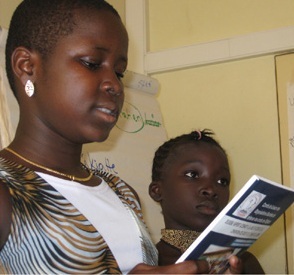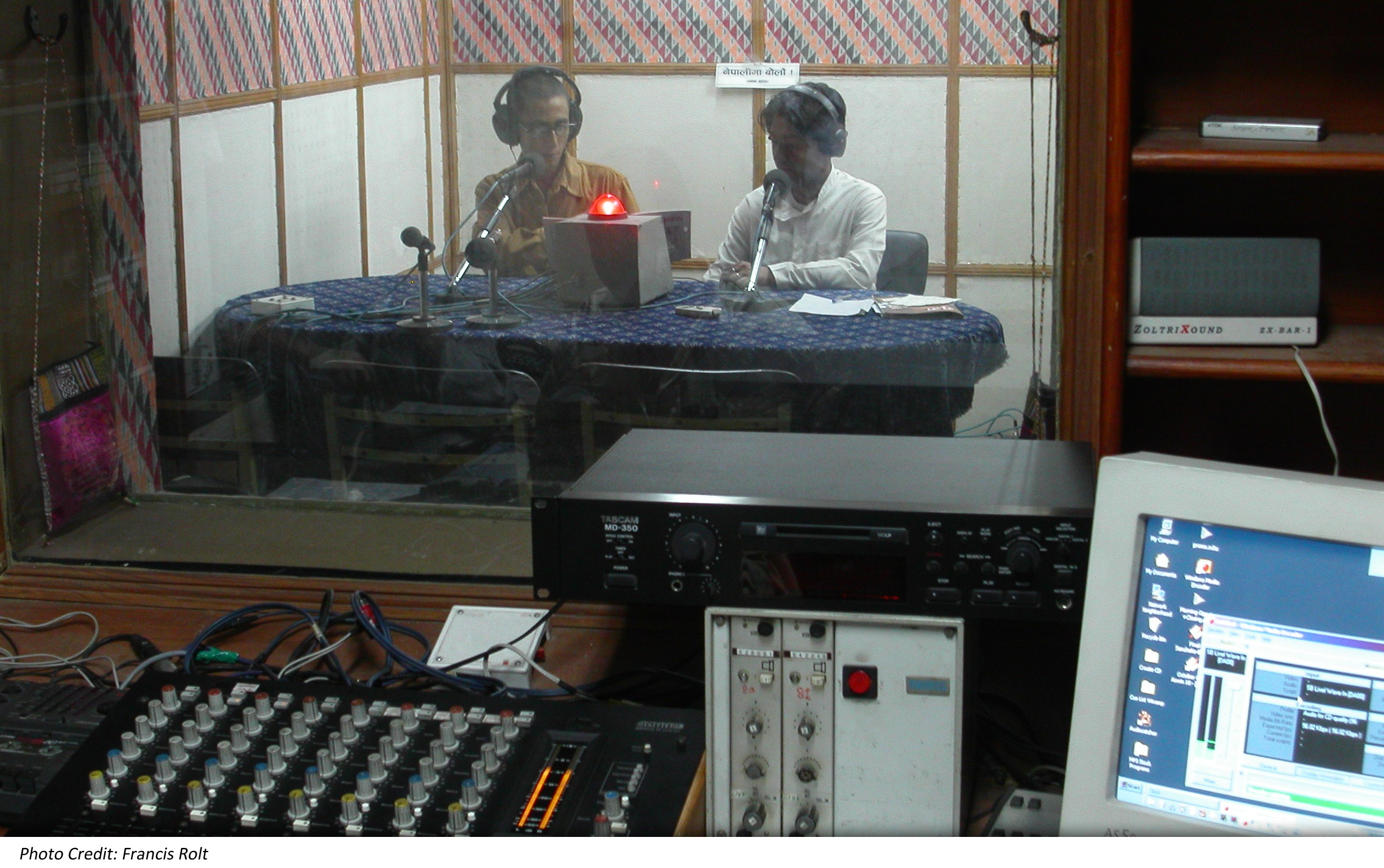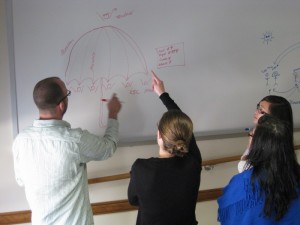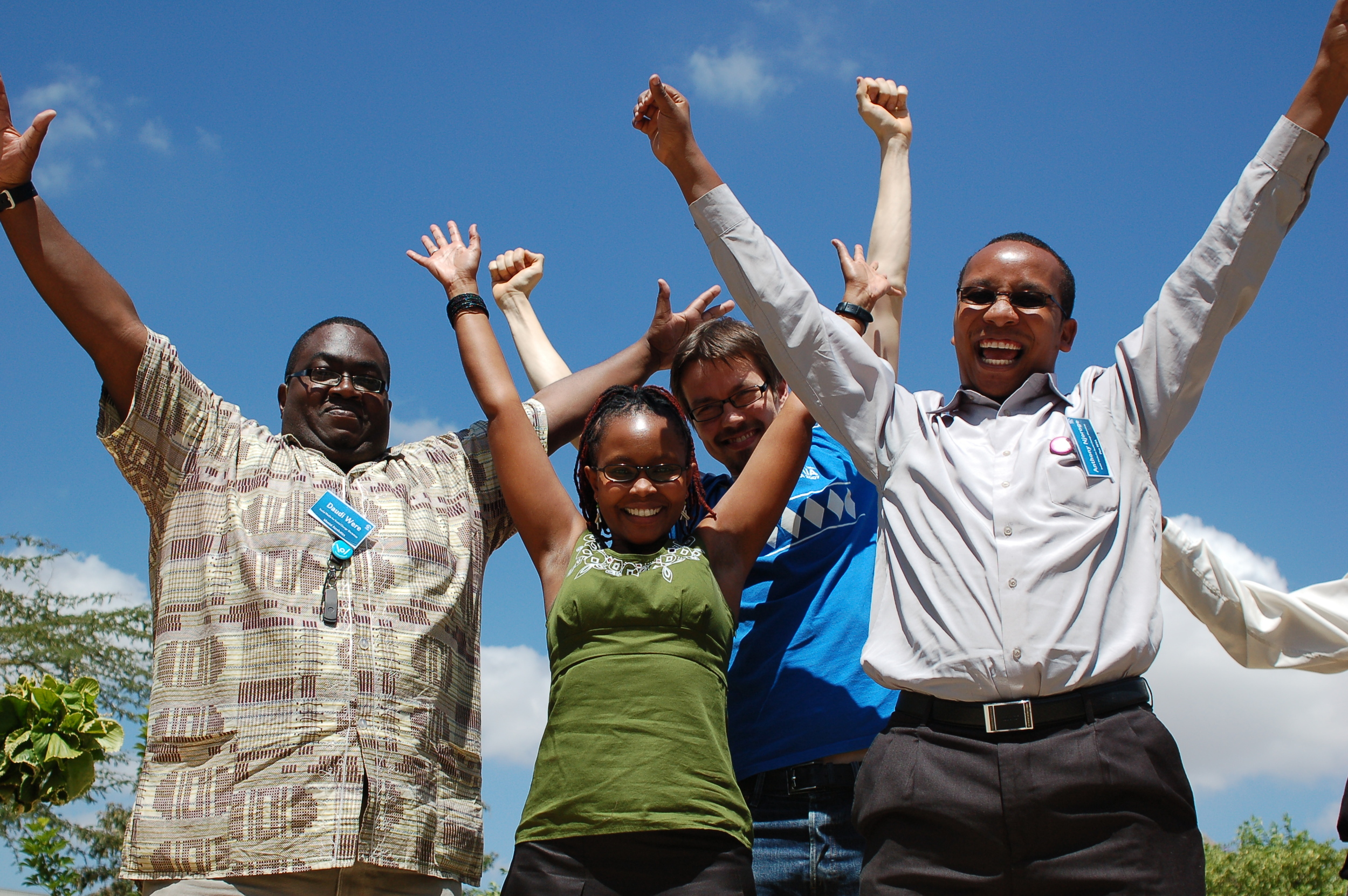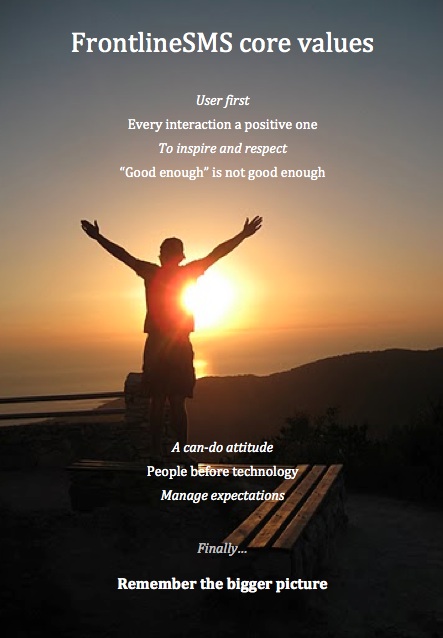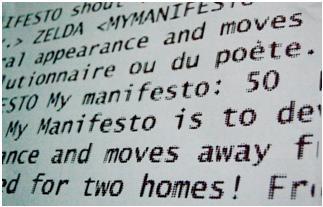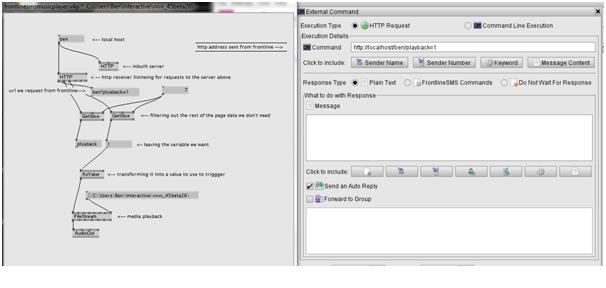Guest post by Ben Parfitt, Ugunja Research Team
Africa has undergone a mobile revolution, and it is spreading. The health sector is capitalizing on the resulting plethora of new opportunities. Doctors, nurses, health workers and pharmacists often rely on their mobile phones, using them as a reference tool, accessing information otherwise unavailable to them. Among this rapid change, a coordinated movement is beginning to engage people living with HIV, en mass, through FrontlineSMS.
Cleopa Otieno, KenTel National Coordinator, works with a network of 42 telecenters throughout Kenya, providing technical solutions to help communities reach out. KenTel has helped introduce FrontlineSMS to many health centers in Kenya. “Health centers are of great interest,” Cleopa explains. “Last year we began to focus on sending text messages to help people living with HIV.”
St Paul’s health center in Ugunja, western Kenya, formed part of a pilot study, to investigate the effectiveness of using SMS to support those living with HIV. In this rural town near the Ugandan border, nine out of ten residents regularly use a mobile phone, according to our recent survey. And of those, over 72% ranked mobile telephony as the most important technology they use to get information and to communicate.
The pilot study involved sending a course of SMS messages to 268 people living with HIV up to three times a week. Trial messages included: “Wash hands with soap and safe water before handling food, eating and after visiting the toilet. Wash fruits and vegetables with safe clean water before eating them.” It was hoped that such advice would help prevent infection and illness among those most vulnerable.
Important lessons were learned through this pilot study. It was revealed that patients knew how to act, but many were not aware of the underlying reasons for doing so. Yet it also became clear that too much was being communicated in too short a time frame and they soon became overwhelmed. The patients wanted to know why this information mattered and they wanted clear, practical solutions dealt out in small, manageable chunks.
It also became clear that technology couldn’t substitute the face-to-face community meetings which penetrate many corners of life in Ugunja. We learned that FrontlineSMS is to be used in addition to, not instead of, such personal that are so ingrained into everyday life.
The health center is now preparing to roll out the initiative to all of its 450 people living with HIV. Many different people – staff and volunteers – are helping prepare for this roll out. Three students, from the Radboud University Nijmegen in the Netherlands, have helped lay the foundations for this roll out, compiling a digital database from which to send mass messages using the FrontlineSMS service. They have also supplied a laptop for the health centre to use, along with basic IT training.
St.Paul’s nutritionist, Isaac Masinde, is one of three healthcare workers managing content. He is working with FrontlineSMS to deliver nutritional interventions, especially for people living with HIV who become undernourished. “It is important to remind them of the most effective times to eat and to take their food by prescription dosage," Isaac explains. “We advise them on dietary measures to be taken to improve their BMI. I can see that this is picking up gradually.”
This may be just the beginning of using technology to help support people living with HIV. “We want to make further use of an interactive voice recognition system, allowing patients to call the health centers, listen and leave questions,” explains Cleopa. By using a range of communications tools it is hoped that the health center can reach and help support as many people as possible.
Ben Parfitt worked in rural Kenya as part of the Ugunja Research Team this summer. Kindly supported by the ICT4D Collective at Royal Holloway, University of London and by the Royal Geographical Society’s Gumby Award. Visit www.ugunja.wordpress.com to follow the team’s progress.







